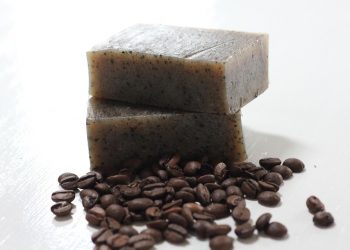Did you know that artichokes are not just a pretty face on your plate? They’re packed with health benefits, especially for your gut! If you’ve ever wondered how a humble vegetable could play a significant role in your digestive health, you’re in for a treat. Let’s dive into the delicious world of artichokes and explore five tasty ways they can give your gut the love it deserves.
Contents
1. Rich in Fiber: A Gut’s Best Friend
Let’s kick things off with fiber. Artichokes are a fiber powerhouse; one medium artichoke contains about 7 grams of fiber! This isn’t just any fiber; it’s mostly soluble fiber, which helps keep your digestive system running smoothly.
Why Fiber Matters
Fiber is essential for gut health because it adds bulk to your stool, making it easier to pass. But that’s not all! It also acts as a prebiotic, feeding the good bacteria in your gut. These friendly microbes, in turn, help break down food and produce beneficial short-chain fatty acids (SCFAs) that have anti-inflammatory properties.
Pros and Cons
While the benefits of fiber are clear, it’s essential to introduce it into your diet gradually. If you’re not used to a high-fiber diet, diving into artichokes headfirst can lead to bloating or gas. So, start with a small serving and increase as your gut adjusts.
2. Packed with Antioxidants
Artichokes are not just fiber-rich; they’re also loaded with antioxidants. These compounds help combat oxidative stress in your body, which can lead to inflammation—a significant factor in gut health issues.
The Antioxidant Arsenal
Artichokes contain several antioxidants, including quercetin and cynarin. These compounds can help reduce inflammation in the gut and promote a healthier digestive system. A study published in the Journal of Agricultural and Food Chemistry found that artichokes rank among the highest in antioxidant content compared to other vegetables (López et al., 2010).
Pros and Cons
While antioxidants are generally beneficial, it’s worth noting that consuming them in moderation is key. Overloading on antioxidant-rich foods can sometimes lead to imbalances in nutrient absorption. So, enjoy artichokes as part of a varied diet!
3. Supports Healthy Bile Production
Did you know that artichokes can help your liver? They stimulate bile production, which is essential for digesting fats and absorbing fat-soluble vitamins. Bile also plays a role in detoxifying your body, making artichokes a fantastic addition to a gut-friendly diet.
How It Works
The cynarin in artichokes promotes bile flow, which helps emulsify fats for better absorption. This process not only aids digestion but also supports overall liver health—an organ that plays a crucial role in detoxification and metabolism.
Pros and Cons
While increasing bile production can be beneficial, those with certain liver conditions should consult a healthcare provider before making significant dietary changes. It’s always best to approach new health strategies with caution.
4. Enhances Gut Microbiota Diversity
Diversity in your gut microbiome is vital for optimal health. Artichokes can help enhance that diversity by serving as a prebiotic food source. Prebiotics feed the beneficial bacteria in your gut, promoting a balanced microbiome.
The Microbiome Connection
A diverse microbiome is associated with better digestive health and a lower risk of various diseases. Regularly consuming artichokes can help support the growth of beneficial bacteria like Bifidobacteria and Lactobacillus. These bacteria play essential roles in digestion, immune function, and even mental health!
Pros and Cons
While adding prebiotics like artichokes is generally beneficial, it’s important to maintain a balanced diet. Relying solely on one food can lead to gaps in nutrition. Enjoy artichokes alongside a variety of other fruits, vegetables, and whole grains for the best results.
5. A Natural Source of Inulin
If you’ve heard of inulin, you might know it as a trendy supplement for gut health. But did you know that artichokes are one of the best natural sources of this prebiotic fiber? Inulin can help improve bowel regularity and promote the growth of beneficial gut bacteria.
The Benefits of Inulin
Inulin is known for its ability to enhance gut health, improve nutrient absorption, and even aid in weight management by promoting feelings of fullness. A study published in Nutrition Reviews highlighted that inulin can help regulate blood sugar levels and contribute to overall digestive health (Slavin, 2013).
Pros and Cons
Again, moderation is key. While inulin is beneficial, some people may experience digestive discomfort when consuming it in large amounts, especially if they have irritable bowel syndrome (IBS). If you’re new to inulin, start with small servings of artichokes and monitor your body’s reaction.
FAQs
1. How can I prepare artichokes to maximize their health benefits?
Steaming or boiling artichokes are great options since they preserve most of their nutrients. Try serving them with a light lemon or garlic dip for added flavor!
2. Can I eat artichokes if I have a sensitive stomach?
Yes, but start with small portions. If you experience discomfort, it might be best to consult a healthcare provider.
3. How often should I eat artichokes for gut health?
Incorporating artichokes into your diet once or twice a week can be beneficial. Just ensure you balance them with other fiber-rich foods.
4. Are canned artichokes as beneficial as fresh ones?
Canned artichokes can still provide health benefits, but check for added sodium or preservatives. Fresh is generally best for maximum nutrient retention.
Conclusion
Artichokes are more than just a delicious addition to your meals; they’re a bona fide gut health champion. From their high fiber content to their antioxidant properties, these tasty vegetables offer a range of benefits that can help support your digestive system. So why not add them to your next meal? Whether you’re steaming them, tossing them in a salad, or blending them into a dip, your gut will thank you!
Remember, as with any dietary changes, it’s wise to consult a healthcare provider—especially if you have specific health conditions or concerns. Here’s to your health and happy gut!
References
-
López, M. L., & Rojas, A. (2010). Antioxidant capacity of artichoke (Cynara scolymus L.) extracts. Journal of Agricultural and Food Chemistry, 58(4), 2206-2211. https://doi.org/10.1021/jf903433g
-
Slavin, J. (2013). Fiber and prebiotics: mechanisms and health benefits. Nutrition Reviews, 71(1), 1-12. https://doi.org/10.1111/j.1753-4887.2012.00515.x
-
Mayo Clinic. (n.d.). Dietary fiber: Essential for a healthy diet. https://www.mayoclinic.org/healthy-lifestyle/nutrition-and-healthy-eating/in-depth/fiber/art-20043983
-
National Institutes of Health. (n.d.). Probiotics and prebiotics: What’s the difference? https://www.nih.gov/news-events/nih-research-matters/probiotics-prebiotics-whats-difference
This article is for educational purposes only and is not a substitute for professional medical advice. Always consult a qualified healthcare provider before making changes to your health routine.
Get Your FREE Natural Health Guide!
Subscribe now and receive our exclusive ebook packed with natural health tips, practical wellness advice, and easy lifestyle changes — delivered straight to your inbox.














